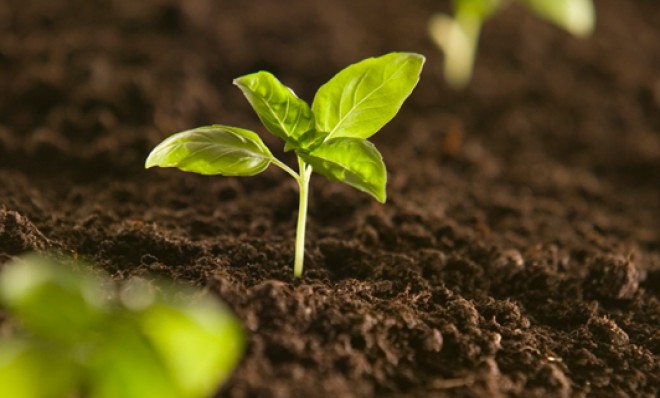Plants can do math
Are you smarter than your groundcover?

A free daily email with the biggest news stories of the day – and the best features from TheWeek.com
You are now subscribed
Your newsletter sign-up was successful
Fascinating new research reveals that plants perform careful arithmetic to ensure they don't starve overnight.
To understand how plants are capable of performing basic division (trumping both third graders and math-illiterate writers alike), it's important to recall how photosynthesis works in the first place.
To create the energy stores it needs to live, a plant will suck in carbon dioxide from the air, and water from the soil using it roots. Then, when sunlight hits it during the day, those molecules are converted to sugars and starch. The rest of the byproducts are released into the atmosphere as beautiful, breathable oxygen. When the sun sets, however, plants must rely on their starch stores to keep themselves nourished. Failure to do so means a failure to grow.
The Week
Escape your echo chamber. Get the facts behind the news, plus analysis from multiple perspectives.

Sign up for The Week's Free Newsletters
From our morning news briefing to a weekly Good News Newsletter, get the best of The Week delivered directly to your inbox.
From our morning news briefing to a weekly Good News Newsletter, get the best of The Week delivered directly to your inbox.
In a new study published in the journal eLife, researchers from the John Innes Centre (JIC) in Norfolk, England, found that plants make ultra-precise adjustments to their rate of starch consumption so that by the time the sun rises, they've used up 95 percent of their stores. Plants, in other words, use basic math to maximize their efficiency.
This research is the first "concrete example in a fundamental biological process of such a sophisticated arithmetic calculation," says Martin Howard, a mathematics modeler at the JIC.
During the night, mechanisms inside the leaf measure the size of the starch store and estimate the length of time until dawn. Information about time comes from an internal clock, similar to our own body clock. The size of the starch store is then divided by the length of time until dawn to set the correct rate of starch consumption, so that, by dawn, around 95 percent of starch is used up. [PhysOrg]
Yes, this claim does make the study sound a bit like a grab for attention. But the description makes sense. Alison Smith, a metabolic biologist who worked on the study, says that "the calculations are precise so that plants prevent starvation but also make the most efficient use of their food." It's akin to a hiker packing just the right amount of food for a week-long journey into the wilderness. Pack too much, and not only will you be overburdened, but the excess food will go to waste; fail to pack enough, and… well, you know.
A free daily email with the biggest news stories of the day – and the best features from TheWeek.com
"If the starch store is used too fast, plants will starve and stop growing during the night," adds Smith. "If the store is used too slowly, some of it will be wasted."